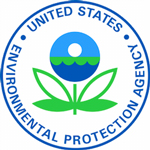 The U.S. Environmental Protection Agency (EPA) and the U.S. Department of Justice (DOJ) have reached a settlement with a Utah-based company that was alleged to have generated more than 7.2 million invalid renewable fuel credits worth more than $2 million. This news release from the EPA says Washakie Renewable Energy, LLC generated the Renewable Identification Numbers, or RINs, from the company’s Plymouth, Utah facility in 2010.
The U.S. Environmental Protection Agency (EPA) and the U.S. Department of Justice (DOJ) have reached a settlement with a Utah-based company that was alleged to have generated more than 7.2 million invalid renewable fuel credits worth more than $2 million. This news release from the EPA says Washakie Renewable Energy, LLC generated the Renewable Identification Numbers, or RINs, from the company’s Plymouth, Utah facility in 2010.
During that time, however, Washakie did not produce any biodiesel at the Plymouth facility. The biodiesel associated with the 7.2 million RINs would have accounted for a reduction of emissions equivalent to more than 30,000 metric tons of carbon dioxide. Washakie has purchased and retired from the market an equivalent number of RINs, which achieved this reduction of emissions.
Renewable fuel producers and importers generate RINs for each gallon of renewable fuel in the U.S. market that meets greenhouse gas emissions reduction standards established under the Renewable Fuel Standard. Washakie will pay a $3 million penalty under the settlement, which was lodged today in the U.S. District Court for the District of Columbia.
“This case is another example of EPA’s commitment to maintain the integrity of the Renewable Fuel Standard program,” said Cynthia Giles, EPA Assistant Administrator for Enforcement and Compliance Assurance. “Making sure producers are supporting their claims with production of actual renewable fuels is critical to reducing greenhouse gas emissions that are fueling climate change.”
“The defendant made quite a profit by failing to adhere to the requirements of the Renewable Fuel Program regulations,” said Assistant Attorney General Cruden. “The penalty here sends the message that renewable fuel producers will be held accountable for meeting all legal requirements. The Department of Justice remains committed to taking the profit out of illegal activity.”
The EPA says this is the first case under the second Renewable Fuels Standards in which, as a part of a settlement, EPA secured the replacement of invalid RINs by the producer of those RINs. That takes the burden off the buyers of the RINs who bought them to meet EPA compliance issues.

